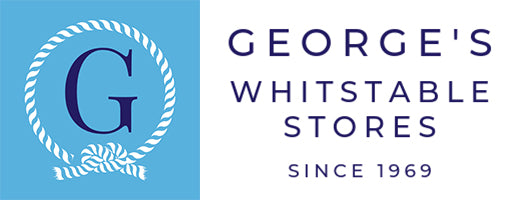
Jigsaws - Piece Together The Benefits
I’ve never been a master of mindfulness – quieting my mind does not come naturally to me. Various attempts to meditate or even simply focus on a task at hand have drawn a blank with to-do lists, ideas and scenario rumination cramming out the uncluttered space I was half-heartedly trying to cultivate. But recent events (aka COVID-19) have inadvertently helped me discover the path to mindful enlightenment!
Desperate for something to do with the kids that didn’t involve home-schooling, a game controller or something invented by Steve Jobs, I brought home one of our jigsaw puzzles – declaring an ipad free zone, whilst unceremoniously dumping the pieces on the table to groans from the pre-teens, we got stuck in, reluctance and distain gradually giving way to their competitive streaks and the challenge – ten minutes later we were hooked, en famille. And we are not alone...
The origins of jigsaw puzzles go back to the 1760s when John Spilsbury an engraver and mapmaker pasted maps onto wood and cut them into small pieces. Since then jigsaw puzzles have fallen in and out of fashion. During these strange times in which we are confined to our homes, jigsaws are enjoying a robust resurgence and, as it turns out, helping to keep the nation sane. There is more choice now than ever before and it seems everyone if jumping on the puzzle bandwagon – even Christian Dior getting in on the action – if you ever needed proof that puzzles are in fashion once again!
Modern jigsaw puzzle designs abound in our Contemporary Jigsaw Collection and include beautiful images that are a sheer delight to piece together – there is a jigsaw to appeal to everyone whether you love Shakespeare, hairstyles or gin! There are shaped jigsaws, double sided and 2-in-1 puzzles, beautiful works of art, vivid illustrations and fabulous photos recast in jigsaw form. And don’t forget the classics – chocolate box villages, family airshows and kitsch cats – there is much to be said for keeping it old skool with your jigsaw puzzle choice!
This upward trend in jigsaw puzzling is not surprising; after all, the many mental, physical and social benefits of doing jigsaw puzzles are well documented …
Puzzles promote mindfulness and relaxation – when you’re laser-focused on finding a piece you’re fully in the moment. There’s no room for invading thoughts or distractions. Studies have shown that looking at an image that you find beautiful is relaxing and can translate to physical benefits such as lower blood pressure.
Puzzling together has social benefits - working on a jigsaw puzzle is a great family activity that encourages both collaboration, conversation and reconnection and involves absolutely nothing digital – it’s a win-win!
Jigsaw puzzles gives your brain a vigorous workout – doing jigsaws use both sides of your brain - the logical left and the creative right. This helps to improves problem-solving skills and increases concentration, according to several studies. Doing jigsaw puzzles releases dopamine, which has a host of benefits and is known as the feel good neurotransmitter. The brain releases it contributing to feelings of pleasure and satisfaction as part of its reward system.
Puzzles improve memory – puzzling creates and reinforces connections between our brain cells and is particularly useful for sharpening our short-term memory because of the skills required for recalling shapes and colours and the ability to imagine the bigger picture.
With so many reasons to bust open a jigsaw puzzle why not embrace the trend? There's even a perfect Spotify soundtrack to puzzle to! https://open.spotify.com/playlist/6MJVvEoZTXdSXsmkTp6G40
Many of our customers are thoughtfully sending puzzles to loved ones as gifts to keep them entertained whilst stuck at home – how lovely to get one as a surprise in the post! If you’re sending one as a gift just let us know (there’s a space to add a note on the check-out page and we’ll gift wrap it for you for free). Check out our Puzzles and Games on the website and get hooked too!
